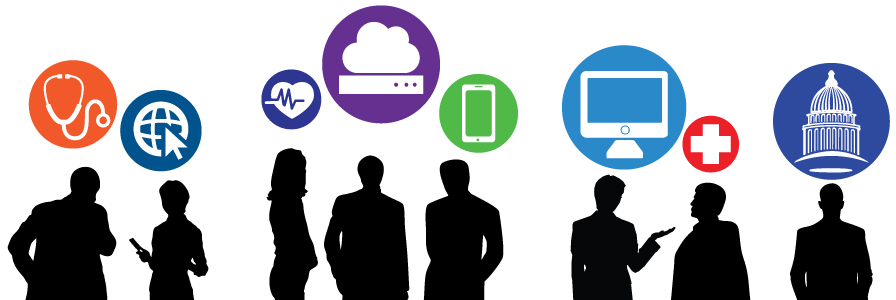
Q&A with CHIME18’s Opening Keynote Speaker, Daniel Pink

9.13.2018
Candace Stuart – Director, Communications & Public Relations
Daniel Pink, author of the New York Times bestseller When: The Scientific Secrets of Perfect Timing and opening keynote speaker at the 2018 CHIME Fall CIO Forum, discusses the motivation for his book and how he applies what he learned to his own work in this exclusive Q&A. “What I found really changed my own behavior and my own understanding of just how important timing is.” Read more below.
Q: What prompted you to write When?
A: It was personal. I realized that I was making all kinds of “when” decisions in my own life, but I was making them in a haphazard, brainless way. I looked around for guidance on how to make those decisions better. It didn’t exist. So I began digging into the research and found a veritable trove of material. It took me two years to work through the studies, to analyze them and sort them into something comprehensible. But what I found really changed my own behavior and my own understanding of just how important timing is. In a sense — and this might sound silly — I wrote this book in order to read it.
Q: Has writing the book changed your approach to your work schedule, and if so, how?
A: Yes. Here’s what we know: Most of us progress through the day in three stages: a peak, a trough and a recovery. During the peak, which for most of us is the morning, we’re better off at analytic tasks, those that require heads-down focus and attention. During the trough, which for most of us is during the early to mid-afternoon, we’re better off doing mundane administrative tasks. And during the recovery, which for most of us is the late afternoon and early evening, we’re better off doing creative tasks. The reasons for all this are somewhat complicated, but that’s the basic structure. However, if you’re a night owl — that is, you wake up late and go to sleep late — it’s much more complicated.
Fortunately, I’m not a night owl, so I should be doing my writing when I’m at my peak vigilance. That’s the morning. Once I understood the pattern, I refashioned my schedule. On writing days, I clear out the entire morning to do nothing but write. No meetings. No calls. No email. I don’t even bring my phone into the office. I also give myself a quota of words — say, 800. And I don’t do anything until I hit that number. If I do that every day, the pages pile up. That’s how I wrote When. And — no joke — is the first of my six books that I finished on time.
Q: You will be our first keynote speaker and your keynote will be the first main-stage event of the morning. Is that a good time for you and for the audience? Why?
A: I hope so! The science is actually on our side. For about 80 percent of us, our mood is reasonably high in the morning. And there’s a pile of evidence showing that most people learn faster and better in the morning compared with other times of day. As for me, I tend to be at the peak of vigilance in the morning — so I’m slightly more likely to be concise and on point.
Q: Some professions don’t follow predictable schedules. How should people in these positions apply the lessons in When?
A: Here’s one key: Be sure to take breaks. That actually matters much more than we realize. Breaks are not deviations from performance. They are *part* of performance. In fact, the science of breaks is where the science of sleep was 15 years ago — about to break through the surface. We also know a lot more about which breaks are best at restoring energy and reviving mental acuity. The best breaks are those in which we’re moving rather than stationary, outside rather than inside, with others rather than alone, and fully detached rather than semi-detached.
Q: Even our most proactive leaders must respond to crises from time to time. What should they do in terms of timing in non-crisis times that will help them perform better during an unscheduled high-stress period?
A: During non-crisis times, it’s important to be intentional. We tend to be very intentional about what we do, how we do it and who we do it with. But we’re far less intentional about when we do things. That’s a mistake. Our cognitive abilities don’t stay the same throughout the day. Indeed, time-of-day alone explains about 20 percent of the variance on how people perform at work. So when we’re not confronting crises, it’s essential to move your analytic tasks to your peak. (That’s early in the day for 80 percent of us and in the late afternoon and evening for the 20 percent of people who are owls.) Don’t schedule administrative meetings then. Figure out your most important focused work, protect your peak hours, and do the work then.
Q: Are you working on a book now? If so, what is it?
A: I’m beginning to figure that out. But I’m, uh, taking my time.
Editor’s note: CHIME18 will be held Oct. 30-Nov. 2 in San Diego. For more information about the forum and to register, go here. Pink’s TED talk on the science of motivation has had more than 20 million views. To view it, go here.
More Inside CHIME
- Here Is What CHIME’s Press Panelists Have to Say about Key Policy Topics – By Candace Stuart
- News of Note – By Candace Stuart
